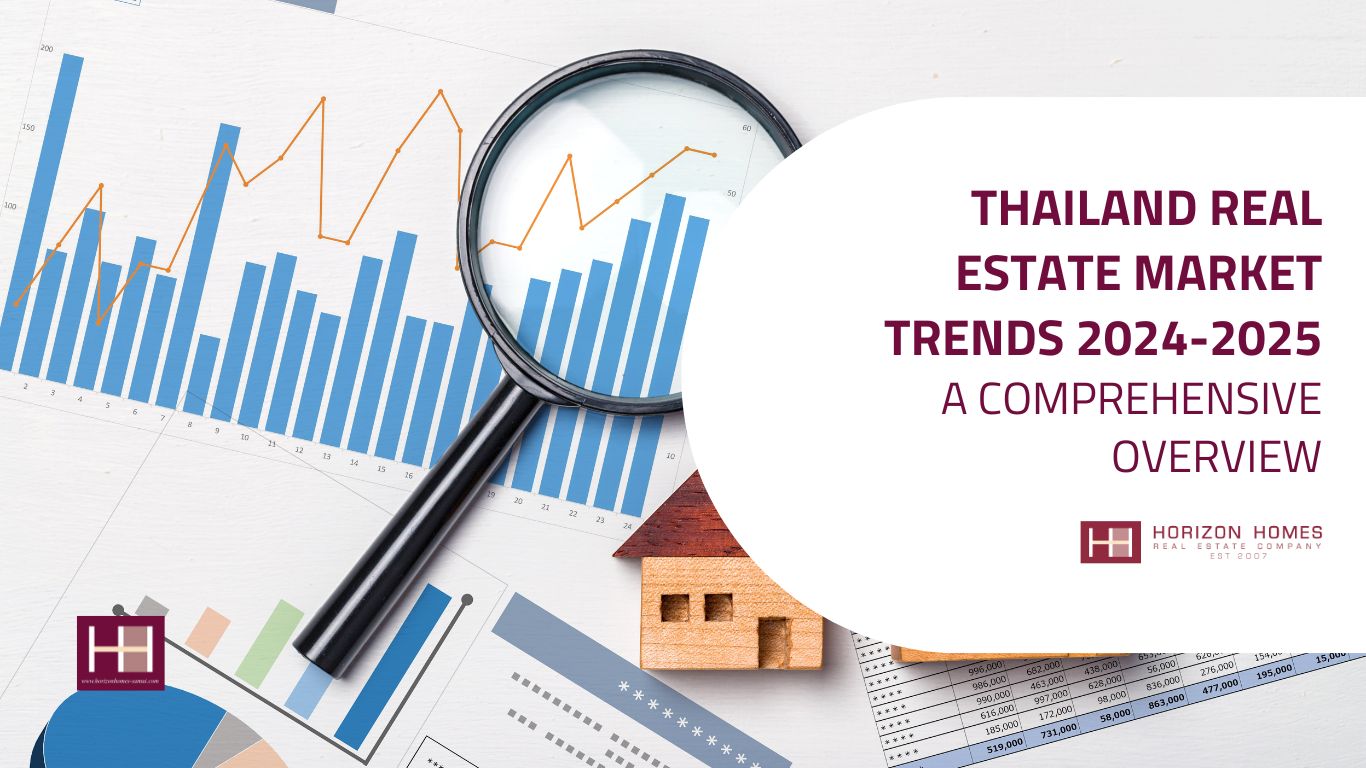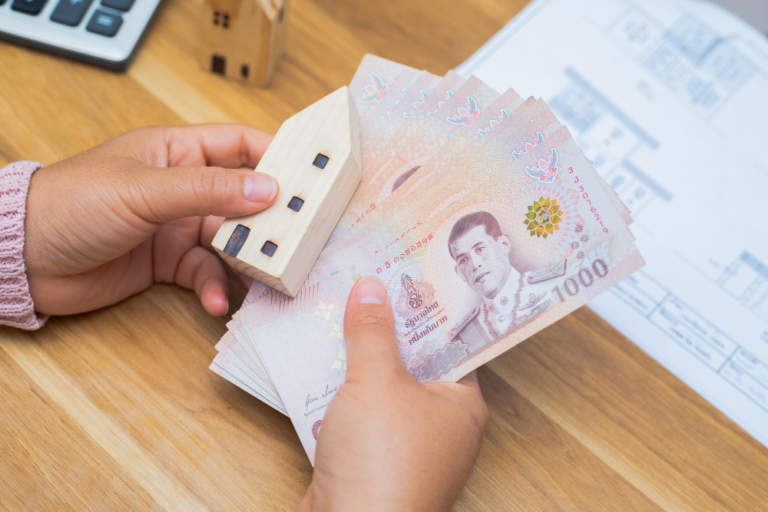Key Market Indicators
| Indicator | Projection |
| Economic Growth | 3-4% annual GDP growth |
| Tourism Arrivals | 41.1 million by 2025 |
| Foreign Investment | 58% increase in foreign direct investment |
| Property Sales Growth | 2-3% annual growth (2024-2026) |
| New Housing Units | 96,000 units annually (2024-2026) |
Thailand’s Market Growth Drivers
1. Economic Recovery
Thailand’s economy is recovering from the pandemic, with GDP growth expected to range between 3-4% annually through 2026. Inflation is projected to decrease to 0.7% in 2024, boosting consumer purchasing power. A growing expatriate population is also fueling demand for rental properties.
2. Infrastructure Development
Key infrastructure projects are driving property value appreciation. The expansion of mass transit systems, especially in the Bangkok Metropolitan Region (BMR), enhances accessibility and boosts demand along these routes. The Eastern Economic Corridor (EEC) initiative is attracting foreign investors, spurring urban development.
2022 Property Market Summary
| Category | Units/Value | YoY Change |
| New Housing Units | 98,341 units | 0.806 |
| Total Value | THB 470 billion | 0.702 |
| Total Sales | 90,297 units | 0.342 |
| Cumulative Unsold | 195,669 units | 0.042 |
3. Tourism Recovery
Thailand’s tourism sector is rebounding, with an estimated 36.1 million tourists in 2024 and 41.1 million projected for 2025. This surge in visitors is driving demand for vacation homes, particularly in high-demand locations like Phuket, Pattaya, and Koh Samui, where investors are seeing strong rental yields and capital appreciation.
Property Type Distribution (2022)
| Property Type | Share of New Units | Sales Growth |
| Condominiums | 55% | 0.763 |
| Townhouses | 28% | -7.00% |
| Detached Houses | 17% | 0.23 |
Regional Market Analysis
Bangkok Metropolitan Region (BMR)
- Demand Surge: The BMR remains the largest and most competitive market, particularly in suburban areas. A growing demand for low-rise housing and premium condominiums along mass transit lines is expected to push prices up by 5-10% annually.
- Property Trends: Focus is on suburban low-rise projects, with high-rise condos near transport hubs seeing strong performance.
Popular Tourist Destinations
- Phuket: Known for high rental yields (over 6%), with a booming luxury villa market. The demand for beachfront properties remains strong.
- Chiang Mai: A popular destination for retirees, offering affordable property prices and stable long-term rental opportunities.
- Pattaya: The recovery of tourism is spurring growth in mixed-use developments, with infrastructure improvements enhancing property values.
Property Segment Analysis
Low-Rise Housing
- Detached Houses: Demand for single-family homes, especially in the THB 20M+ price range, is growing. The premium segment is performing well, while the townhouse market in the THB 2-3M range faces challenges.
- Luxury Projects: Limited-unit luxury housing developments are attracting affluent buyers.
Condominiums
- Urban Recovery: Condominiums in central business districts are recovering, with 60% of new supply concentrated along mass transit lines.
- Foreign Buyers: The premium condo market is particularly attractive to foreign investors, with an average absorption rate of 24%.
Foreign Investment Trends
Key Attractions
- Foreign Ownership: Thailand offers favorable investment policies, including freehold condominium ownership for foreigners. High rental yields in tourist destinations continue to attract international buyers.
- Investor Demographics: Chinese investors dominate the condo market, with increasing investments from Taiwan, Myanmar, and steady U.S. interest
Market Challenges
Financial and Supply Factors
- Rising Interest Rates: Higher interest rates are impacting affordability, particularly for first-time homebuyers and investors.
- High Household Debt: With household debt at 90.6% of GDP, the overall purchasing capacity is strained.
- Supply Issues: There is an oversupply in certain market segments, particularly in lower-priced townhouses. Labor shortages in the construction sector are also hindering new projects.
Property Transfers (9M 2023)
| Property Type | Share of Total Transfers | YoY Change |
| Condominiums | 44% | -0.10% |
| Townhouses | 31% | -8.40% |
| Detached Houses | 16% | -12.00% |
| Semi-Detached & Shophouses | 9% | -8.80% |
Price Index Changes (9M 2023)
| Property Type | YoY Change (%) |
| Condominiums | 0.046 |
| Detached Houses | 0.044 |
| Townhouses | 0.04 |
Future Outlook (2024-2026)
Growth Projections
| Metric | Forecast |
| Sales Growth | 2-3% per year (2024-2026) |
| New Units Growth | 3-4% per year (2024-2026) |
| Price Increases | 5-10% per year |
| Tourist Arrivals | 43 million by 2026 |
Emerging Trends
- Sustainability: Green building initiatives are gaining traction, alongside the adoption of solar energy and electric vehicle (EV) charging infrastructure. The demand for smart homes is also on the rise.
Investment Recommendations
For Investors
- Focus on Mass Transit Corridors: Properties along new mass transit lines are expected to see significant appreciation.
- Target Premium Developments: Tourist destinations offer high rental yields and are prime for investment, especially in luxury villas.
- Monitor Infrastructure Projects: Keep an eye on infrastructure initiatives, particularly in the EEC and urban expansion zones.
For Developers
- Luxury Projects: Emphasize limited-unit luxury developments in high-demand areas.
- Sustainable Features: Incorporate green building technologies to meet market demand for eco-friendly properties.
- Transit-Oriented Development: Focus on projects near mass transit lines, which are expected to appreciate in value.
Conclusion
Thailand’s real estate market is entering a period of sustainable growth, supported by economic recovery, infrastructure expansion, and a vibrant tourism sector. While challenges such as rising interest rates and labor shortages persist, opportunities remain for investors, particularly in premium and tourist-driven segments. As the market adapts to new trends, strategic investments in transit-linked developments and eco-friendly properties will prove most rewarding.
If you’re looking to invest in Thailand’s luxury real estate market, particularly in sought-after locations like Koh Samui, Horizon Homes offers expertise and tailored services to help you find the ideal property. Their commitment to quality and customer satisfaction ensures a seamless investment experience, from initial consultation to property acquisition.




